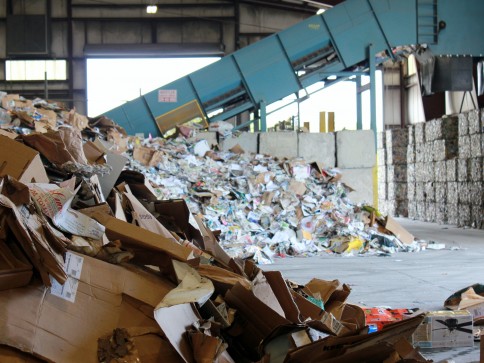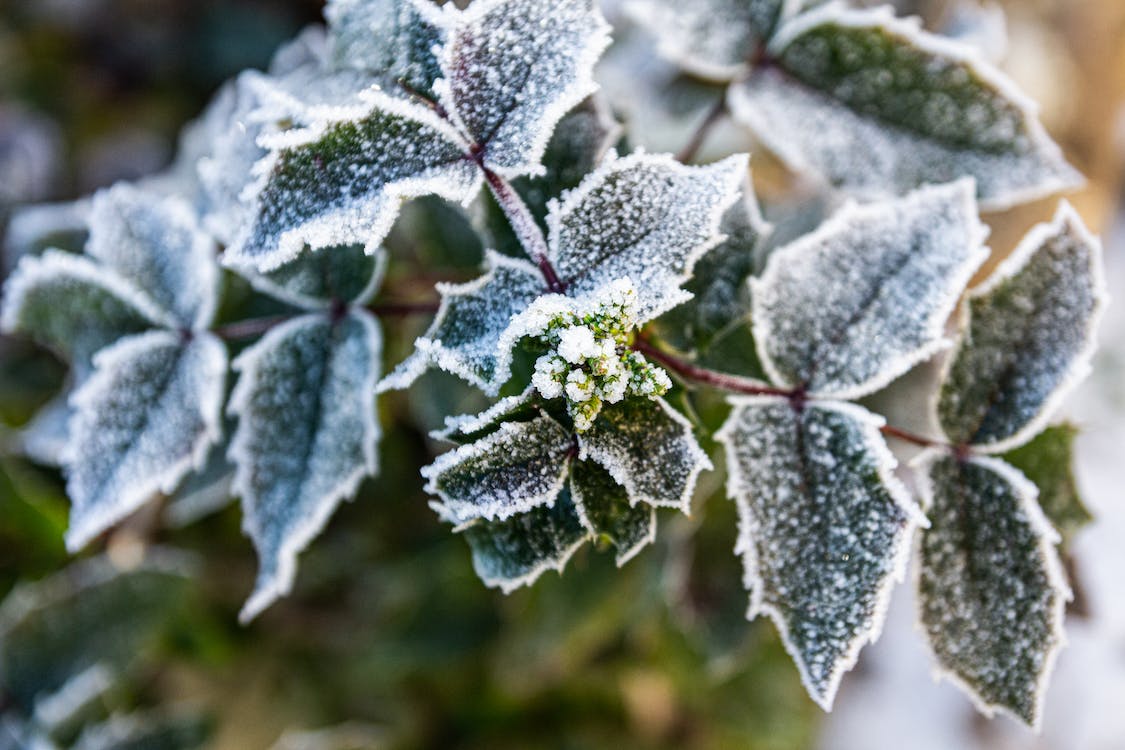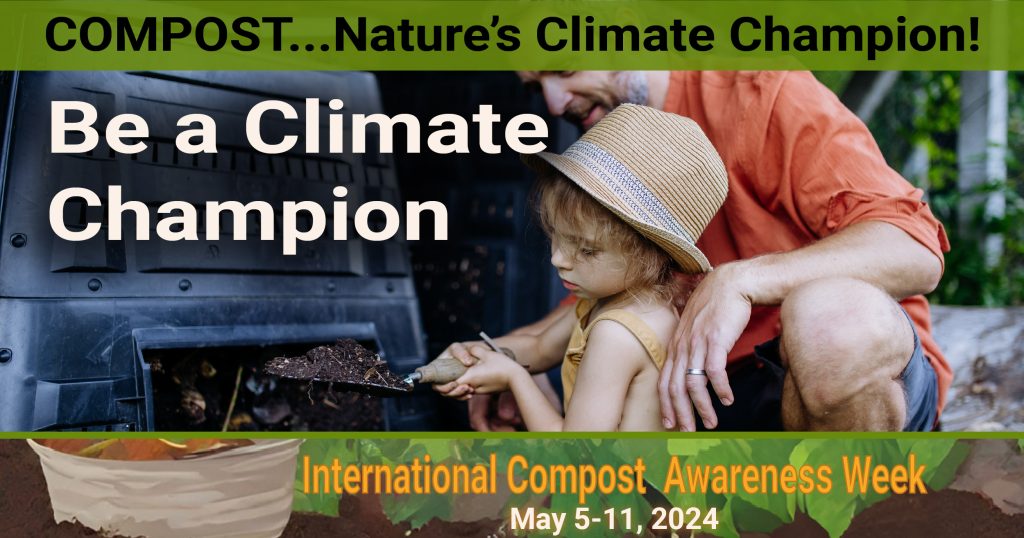
UCRRA Celebrates Compost Awareness Week
Blog by Angelina Brandt, UCRRA Director of Sustainability
May 6th 2023
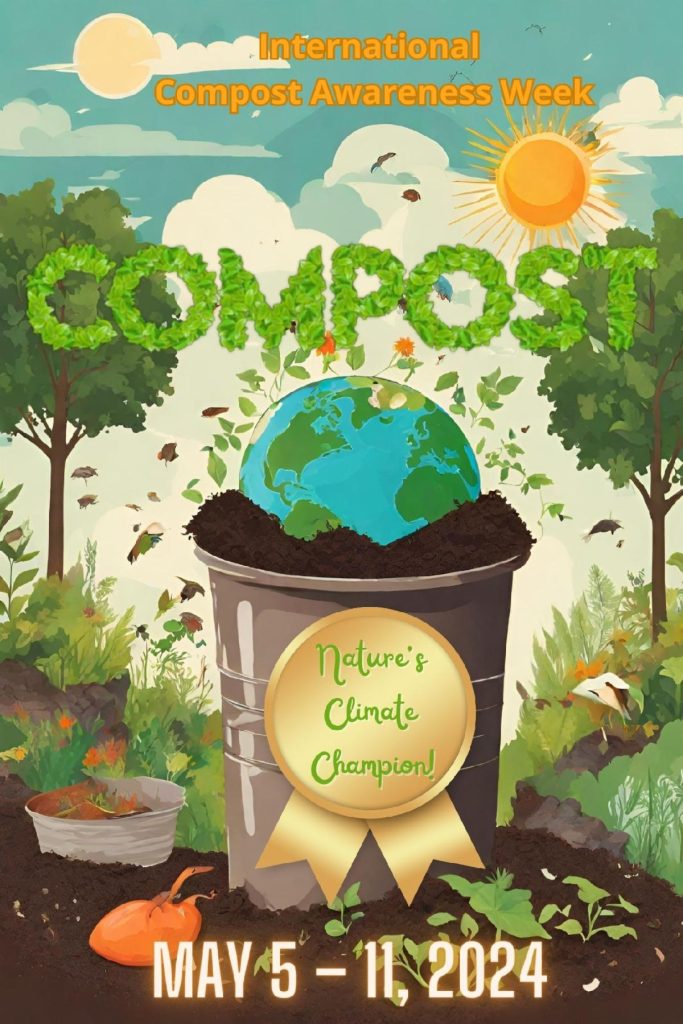
Ulster County Resource Recovery Agency joins states, regions, and countries around the world promoting International Compost Awareness Week (ICAW). ICAW is an initiate by the Compost Research & Education Foundation. The Compost Research & Education Foundation is a 501(c)(3) nonprofit that supports initiatives that enhance the stature and practices of the composting industry by supporting scientific research, increasing awareness, and educating practitioners and the public to advance environmentally and economically sustainable organics recycling.
ICAW is celebrated during the first full week of May and the goal of the educational campaign is to raise public awareness about the benefits of making and using compost. Started in Canada in 1995, ICAW has continued to grow as more people, businesses, municipalities, schools and organizations are recognizing the importance of composting and the long-term benefits from organics recycling.
2024 Theme: COMPOST… Nature’s Climate Champion! Each year, a new theme for ICAW is chosen. The 2024 theme was chosen collaboratively with the International Compost Alliance (ICA), which includes compost associations from around the world! The 2024 theme was chosen incorporating the collective focus on one of the initiatives of the United Nations Sustainable Development Goals (SDG), which is “Take urgent action to combat climate change and its impacts.”
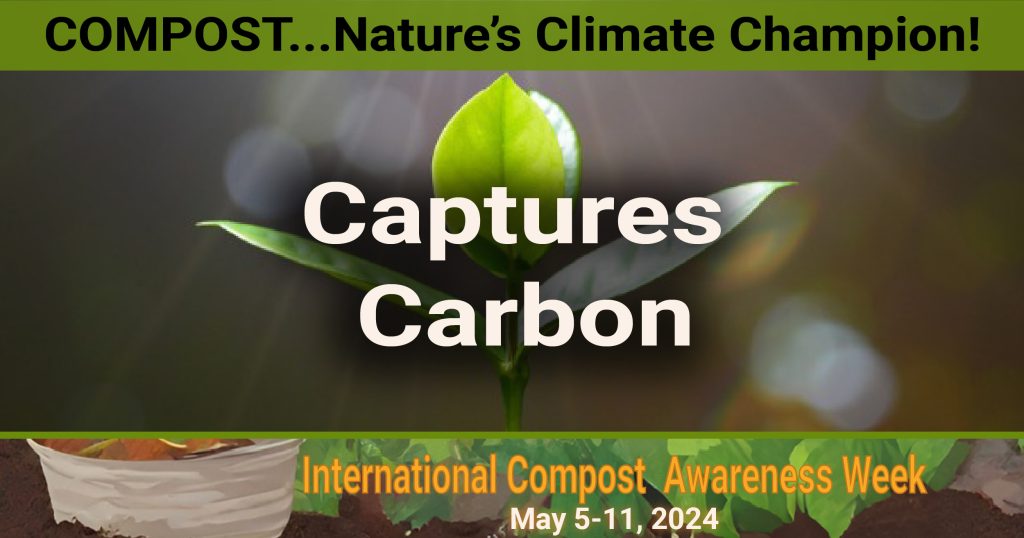
The 2024 theme best reflects the UN goal by highlighting the role compost plays in fighting climate change.
Those roles include:
- Decreasing methane: Methane, a greenhouse gas twenty-five times as powerful as carbon dioxide, can be significantly reduced through the recycling of organics instead of their being landfilled.
- Helping with climate change mitigation: Compost offers a significant answer to climate change mitigation. Compost’s return to the soil serves as a “carbon bank,” helping to store carbon thereby removing it from the atmosphere.
- Reducing fertilizer inputs, reducing the pollution created to manufacture those inputs.
- Increasing resilience: Compost helps to increase resilience to the effects of climate change such as drought and extreme weather.
This year’s winner of the ICAW 2024 Poster Contest is Ny Rindra Arison Malalaniaina. Ny Rindra lives in Antananarivo, Madagascar and is a student in chemical and industrial process engineering.
Our Compost Sustainability Impact
At Ulster County Resource Recovery Agency, we take this opportunity to recognize the important role of compost in improving soil health, stewarding local resources, sequestering carbon in the soil, and reducing organic waste sent to landfill. Between 2012 – 2023, Ulster County Resource Recovery Agency has recovered and recycled 31,762 tons (63,525,100 pounds) of source separated organics, that, if landfilled would have required 907 tractor trailer transport trips to the Seneca Meadows Landfill. At 95 gallons of fuel and 480 road miles per roundtrip, this would have required 86,212 gallons of Diesel fuel and 435,600 road miles (the equivalent distance of driving around the surface of the Earth 17.4 times). In this same time period, the UCRRA has created 17,955 tons (35,910,320 pounds) of locally and sustainably produced, STA-certified compost available to local farmers, landscapers, and home gardeners for use in a variety of horticultural and agricultural applications. Notably, UCRRA was awarded the Small Scale Compost Manufacturer of the Year by the United States Composting Council in December of 2021, and just in time to celebrate our ten year composting anniversary in 2022!
I am excited to promote Compost Awareness Week at the UCRRA. The Agency has been a leader in composting over the last decade and we look forward to continuing to expand our operations. We are planning to increase in our capacity to divert source separated food waste by 50 percent this year, from 5,000 tons to 7,500 tons. We also look forward to working with community partners to continue to build programs that divert organic waste out of our waste stream and keep it out of a landfill.
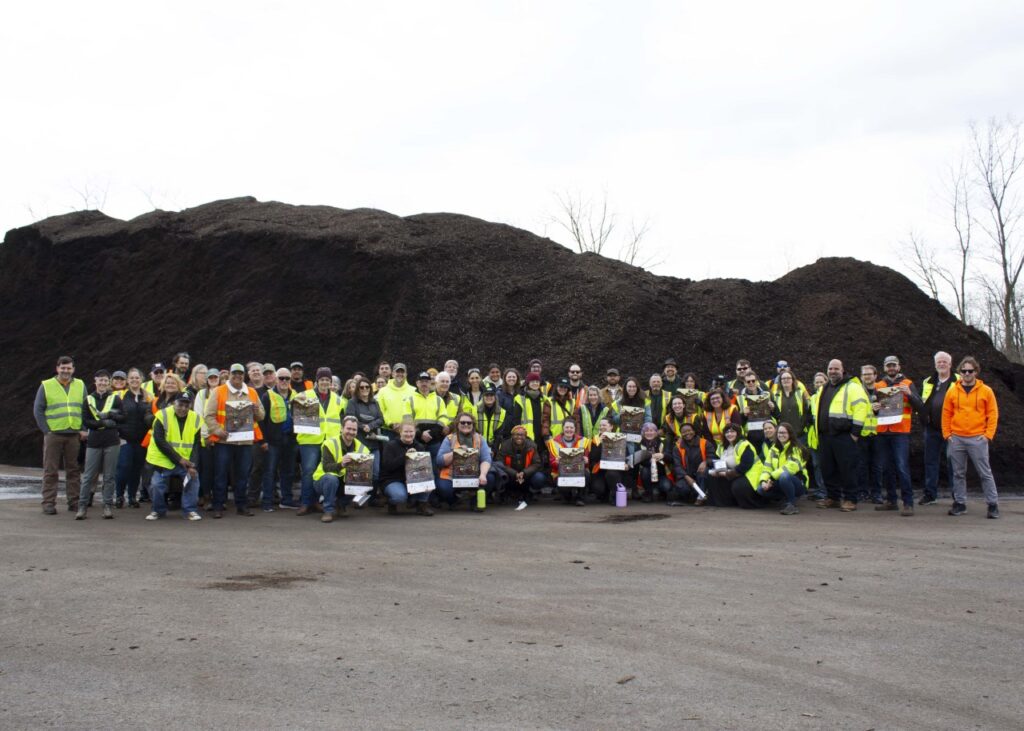
ICAW is promoted across the country and worldwide by holding different types of group activities and special events. Recycling professionals, horticulturalists, school groups, volunteers, and other community leaders spend the week working to educate communities about composting by holding different programs, workshops, and trainings. From touring composting facilities to planting gardens and meeting with local experts, ICAW is a fun and educational program that reaches thousands of people. Visit the New York Compost Awareness Week page for more information about local programs, events, and initiatives. UCRRA is offering several special events and programs this month!
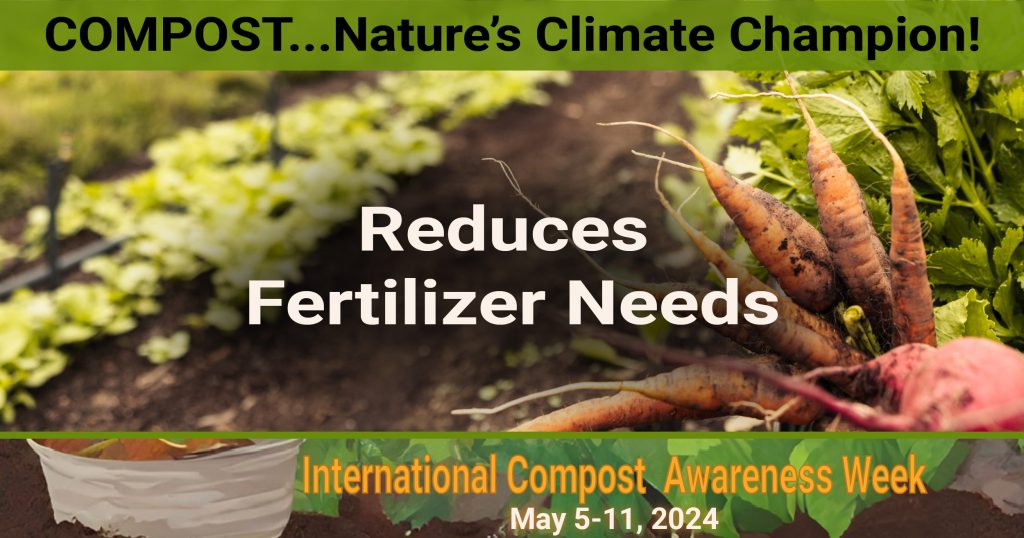
Benefits of Using Compost
- Compost is high in organic matter which has the unique ability to bind nutrients in soil – reducing the need to use chemical fertilizers.
- Compost supplies beneficial soil microbes, which enhances soil biodiversity and helps to suppress plant disease pathogens and reduce the need to use harsh chemical fertilizers.
- Compost improve soil water holding capacity, increasing soil water infiltration and permeability of heavy soils, which reduces runoff and erosion.
- Compost has the unique ability to buffer or stabilize soil pH, which improves nutrient availability for a range of plant species.
- Compost improves soil structure, porosity, and density, allowing room for water and air to enter micro pore spaces in soil, creating a healthier plant root environment.
- Compost makes any soil easier to work with and cultivate.
In addition to these horticultural benefits, composting plays an essential role in meeting zero waste goals. When organic matter is sent to a landfill, it breaks down without oxygen, producing methane (a greenhouse gas that is over twenty times more effective at warming the atmosphere compared to carbon dioxide). By composting, we can effectively manage the organic materials that make up 30% of our waste stream.
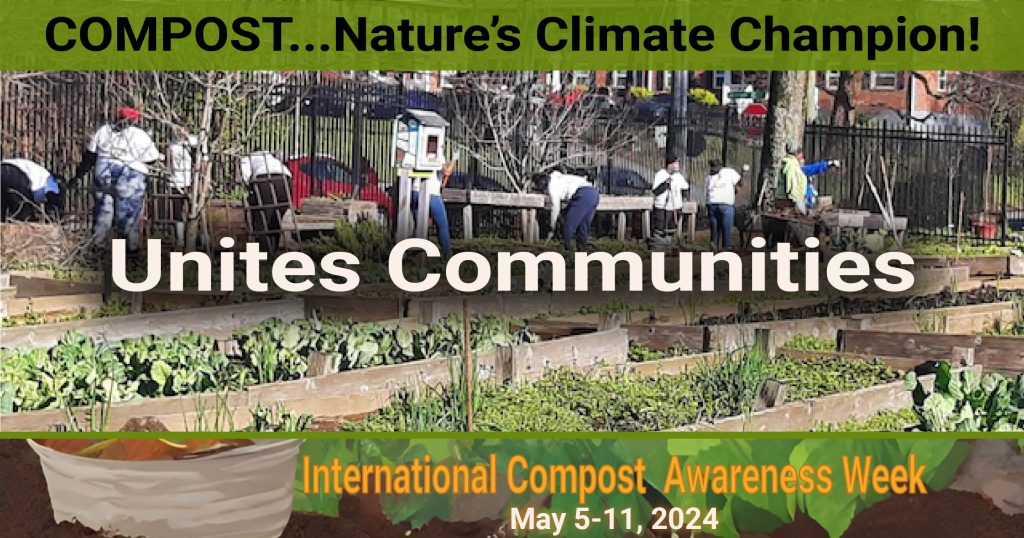
Composting is a climate smart solution, and you can be a climate leader too! Browse our resources below, and share this message!

